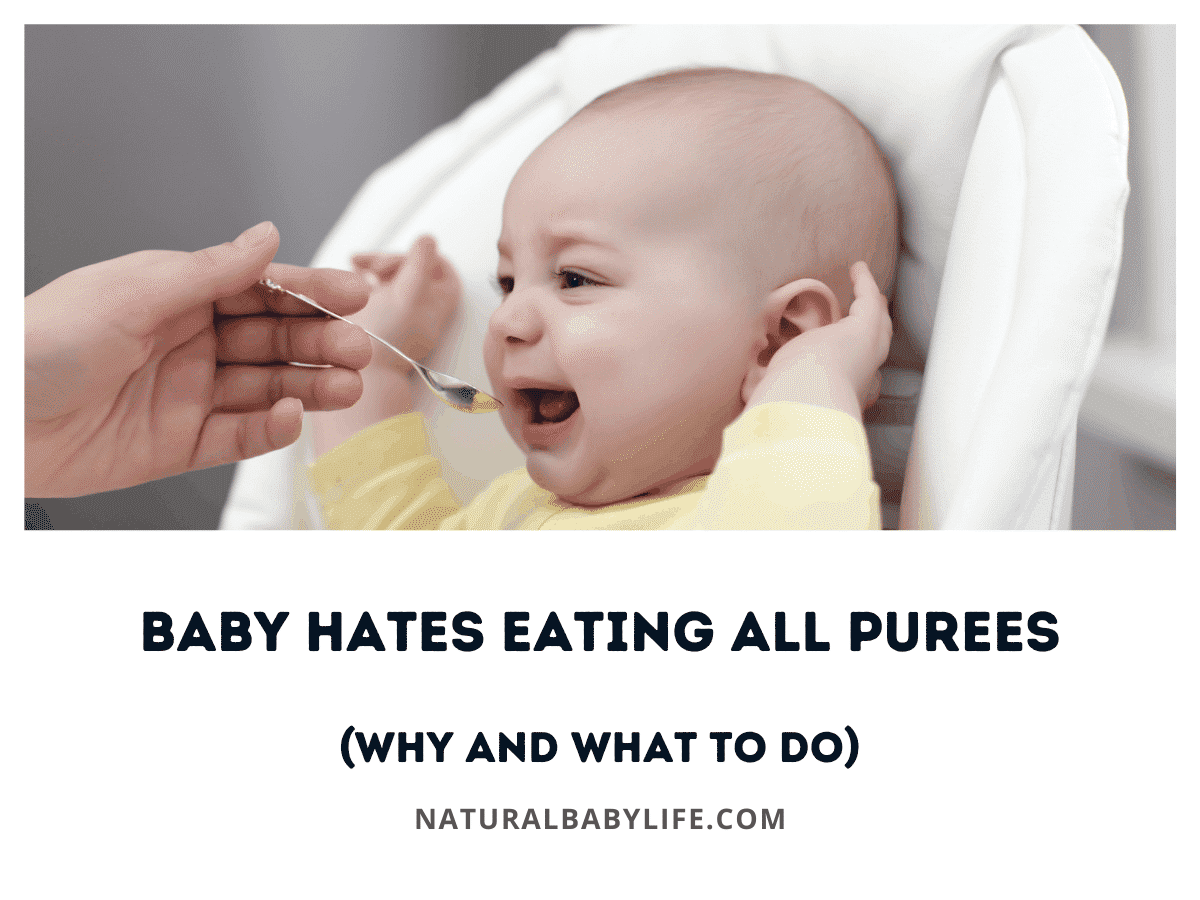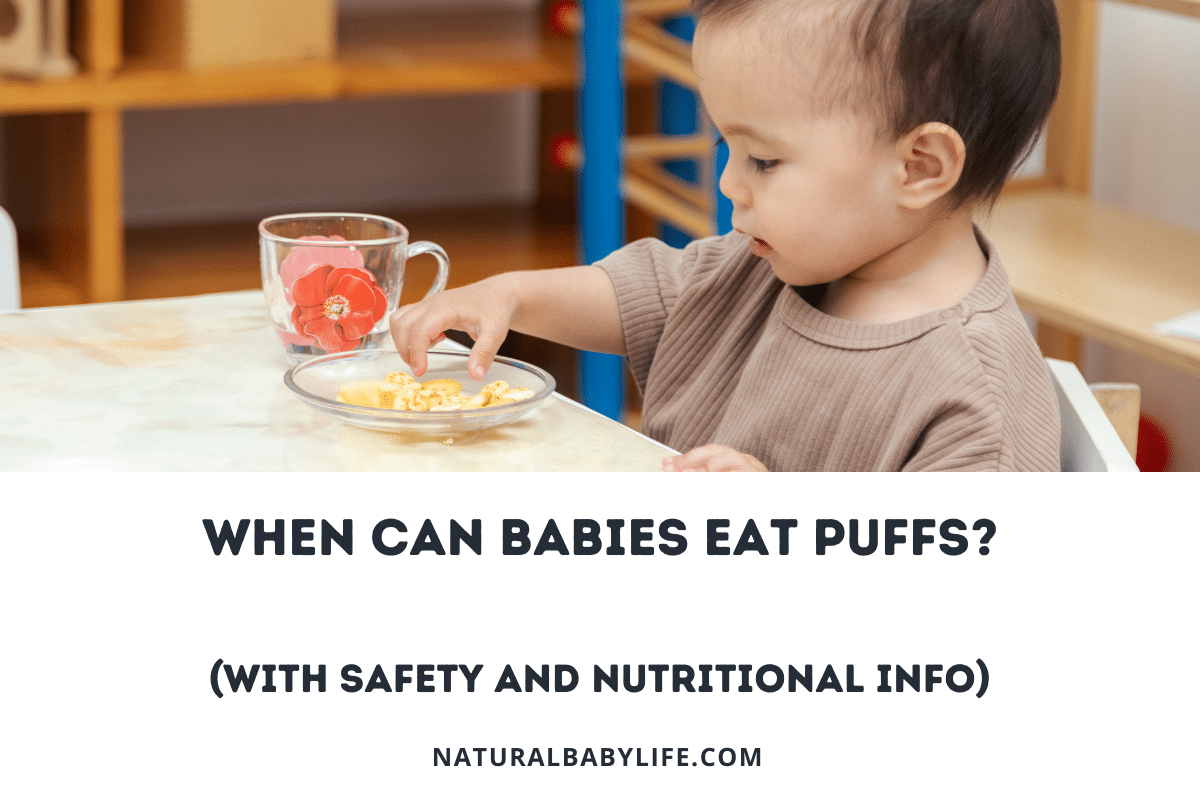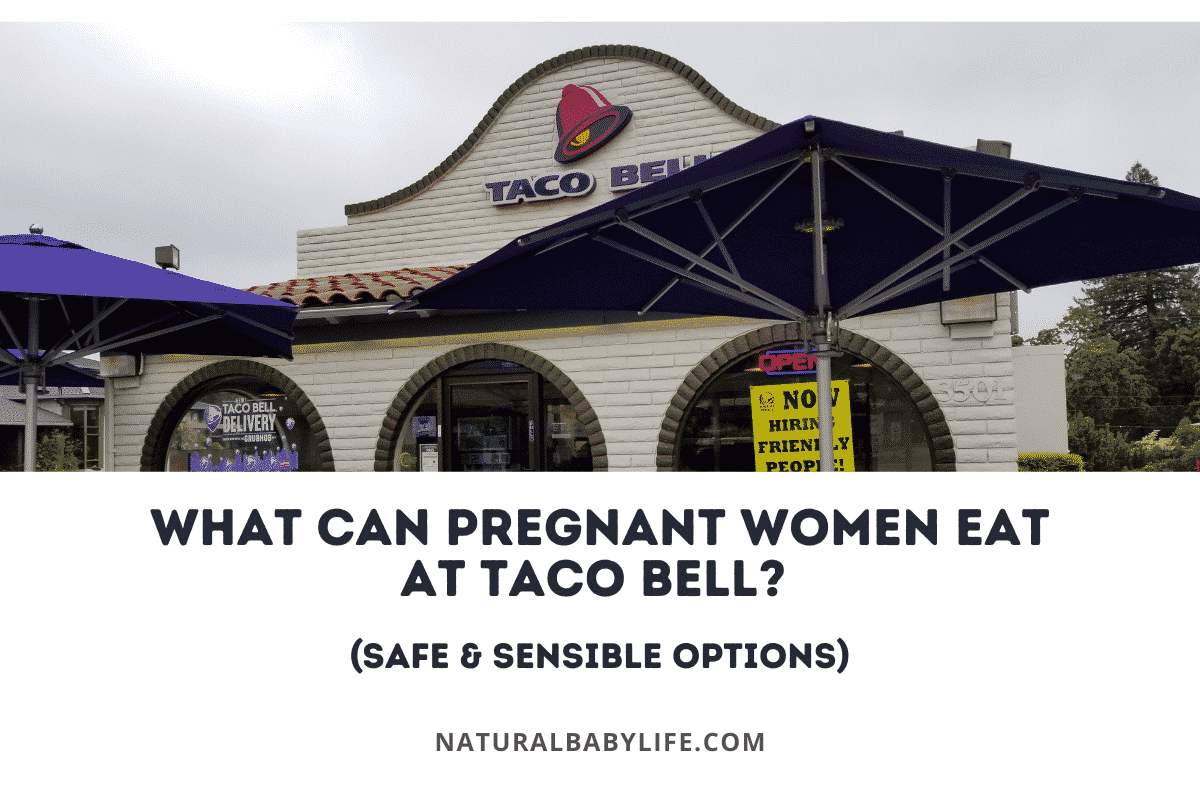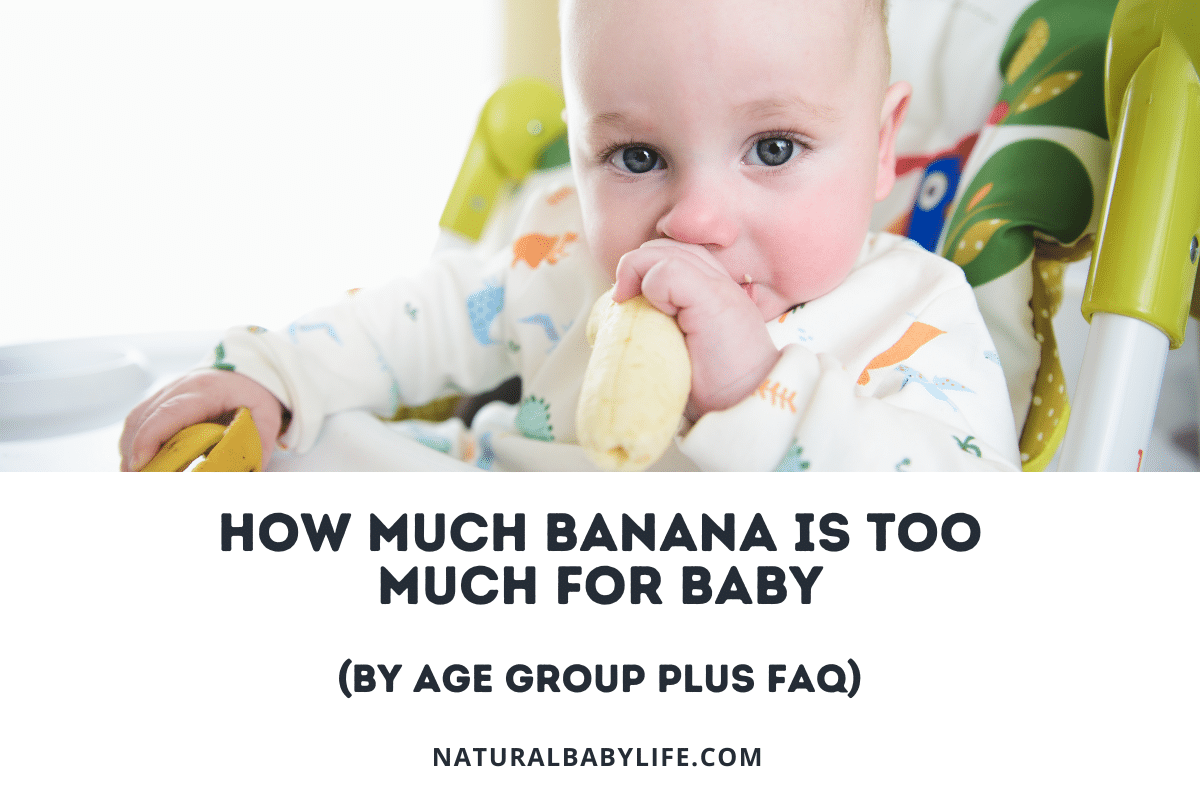Pureed fruits and vegetables have long been a standby for baby first solid foods, but what can you do if your little eater just won’t eat them?
If it seems like your baby doesn’t like pureed baby food, you aren’t alone. The issue could be immediate (they aren’t ready for solid foods, or they’re simply not hungry) or more long-term (they don’t like the flavor or texture of baby food). Either way, you can try offering your baby soft finger foods or alternatives like cereal instead of purees.
If your baby hates all purees – you aren’t alone! Read on to learn when its best to keep trying with pureed baby foods, and when it may be better to give other types of foods a chance.
Table of Contents
Why baby won’t eat pureed baby food
There are many reasons your little one might be refusing to eat their pureed baby food. Just as adults do not always feel like eating at a particular given moment, so your baby will also develop their own tastes and preferences for mealtime.
If your baby consistently refuses to eat pureed baby foods, the problem could be that she’s simply not ready, even if she has reached the recommended age (6 months). Babies who have spent their whole short lives with a single source of nutrition – either breastmilk or formula) may not be inclined to give up that comfort for the extra effort of consuming solids, or they may have found they don’t like the way they feel after eating.
There are several things you can do to create the ideal feeding environment, make sure your baby is ready, and set your little one up for success. And if all else fails, you can always introduce some alternatives to pureed baby food.
To understand what could be going on behind the scenes, let’s cover some of the reasons why your baby won’t eat their pureed baby food.
When is a baby ready for solid food?
One key reason your baby could be refusing to eat pureed baby food is that they are just not ready for solid food.
Typically, a baby is ready to start the transition to solid foods around the age of 6 months, but their physical development is more important than their age. They should be sitting independently, demonstrating good control over their head and neck, and showing an interest in food such as leaning forward for a bite or grabbing at the plates of those around them.
Once your baby starts reaching for other family members’ food, that is a key sign you can use to know that your baby is ready.
Baby not interested in eating solids
If your baby really enjoys their formula or breastmilk, they might just not be interested in solid foods yet. They may not realize that an entire world of flavors is out there or could just be unmotivated to put forth the effort required to eat solid foods.
Baby was eating solids now refuses
Sometimes the transition to solid foods can be hard on your little one’s stomach.
If your baby was eating solids before the age of 6 months, their tummy may just need a little more time to develop or adjust. Constipation, diarrhea and other types of tummy trouble may be discouraging them from eating. It is also possible that your little one could refuse solid foods while sick or teething.
If this happens, try taking a short break and try again in a few days or a week.
Why does baby hates purees
If your baby hates all purees, there are a few reasons why they could be refusing the spoon.
Your baby may hate pureed baby food (at least at first!) because they’re simply not ready for the influx of flavors and textures, or maybe they just don’t like the flavor at hand. If it seems like your baby eats well sometimes but not others, the problem is probably the situation itself – they may not hungry, it may be nap time, or there may be too much going on for them to concentrate on food.
Before jumping to the conclusion that pureed foods are just not right for your baby, there are some other factors to keep in mind. It may be that they are just not ready, or it could be something as simple as the wrong time of day.
Keep reading for some of the issues you may encounter and what you can do about them.
Baby isn’t ready for baby food
If your baby just isn’t developmentally ready to try new flavors and textures, they are much more likely to avoid eating their baby food.
You want the introduction of solid and pureed foods to be a fun and enjoyable experience for everyone, so if you suspect that your little one isn’t emotionally or physically ready, give it another try later.
We’ll cover how you can know your baby is ready a bit later in this article.
Baby is not hungry
If your little one just woke up or just finished a long breastfeeding session, they just might not be hungry yet.
Make sure you are offering their food at times when they are interested in eating and are not already full of breastmilk or formula. Family mealtimes are the ideal opportunity to attempt to get your baby to try some food of their own. At lunch or dinner, they have likely been active for a few hours and are seeing everyone else eating.
When your little one just doesn’t seem hungry – don’t push it. See if you can get them to sample at least a taste of the exciting new flavor and you can always try again later.
Baby is too tired to eat
When it’s too close to naptime, or your little one has just woken up, they may not have the patience or ability to sit in their highchair for extended periods during feeding time. Make sure you are offering your baby food at a time when they are wide awake and ready to engage with you in mealtime.
Baby is overwhelmed
If your baby is overwhelmed, they are less likely to be able to focus on mealtime.
This is particularly a factor with large families, noisy households with lots of pets, or if you are trying to feed baby foods inside a loud and chaotic restaurant. Likewise, if your baby is dealing with another issue such as teething or is in the midst of a “wonder week” where their little brains and bodies are suddenly developing at a rapid pace, food is likely to be the last thing on their mind.
You know your child best, so if you think they are simply getting too overwhelmed to eat, try sitting in a quiet room for some 1-on-1 time. After all, they are used to nursing or drinking from their bottle while cuddled up close to you!
Baby doesn’t like flavor
As you might have learned during the games portion of your baby shower, some baby food flavors are… questionable at best. Would YOU want to eat canned Broccoli, Kale and Mango? If you suspect that your little one might just be a picky eater, give another flavor or brand a try.
Many of the pureed baby food pouches made popular in recent years focus on sweet, fruit-filled flavors such as Peach, Banana & Apricot. Find the right flavor and you just might find your tot reaching for it every time you pass the baby food aisle.
How to get baby to eat purees
There are several things you can do to help your little one enjoy mealtime.
Getting your baby to eat properly is dependent on creating the ideal environment. Ensuring that your baby is developmentally ready, finding the right time of day to attempt meals, and reducing or eliminating distractions are just some of the ways to make meals a success.
We’ll cover these and other fun ideas in more detail below.
Make sure baby is ready
Oftentimes, your little one just isn’t ready to let the breast or the bottle go.
Knowing when your baby is ready to begin exploring new foods and flavors is crucial to a successful solid food transition. If you try and force pureed foods too early in the feeding process, you could turn them off from certain flavors and textures for good.
If your baby just isn’t interested – perhaps try again in a month or so. Most pediatricians (and the CDC) recommend that your little one be at least 6 months of age and sitting independently before beginning the switch to pureed and solid foods.
Don’t overfeed (breastmilk or formula) baby before meals
Babies have very small stomachs, so what looks like a small amount to you is probably a very large amount to them.
Try to avoid feeding large amounts of breastmilk or formula to your little one right before meals. If they are already full, offering them more food won’t seem very appealing. Ideally, you want your baby to be hungry (without feeling starved) so they are interested without being frustrated or upset by an empty tummy.
Feed baby after naptime
After giving your little one ample time to wake up, try to offer them new foods shortly after naptime.
They will be awake and fully engaged with you and hopefully ready to explore and try new things. If you try to feed your child before naptime, they could be too tired to put forth the effort required to eat solid foods.
Reduce or eliminate distractions during mealtime
If your child is getting too distracted during mealtime you may want to try feeding them 1-on-1.
With other siblings or family pets around to distract them, it is simply too tempting for some children to sit still and focus on eating. If possible, have other family members leave the room and remove enticing distractions such as toys, tablets or TVs.
Let baby feed you
We’ve all seen the airplane game, which seems to be universally known across parents of all generations. Another fun way to get your child involved in the feeding process is to have them feed you. This can help them see that trying new foods is fun and exciting and that they taste great too!
Don’t give up
While you never want to force your little one to try new foods and create a negative experience, persistence can be the key to solid feeding success. Offer a variety of new foods and offer them often, without forcing them on your child. With this method, it is sure that your child will eventually find a food they like and are willing to eat.
What do you feed a baby that doesn’t like baby food
It may surprise you to learn that pureed foods were not always given to babies.
Parents around the world for centuries have practiced other forms of feeding their babies. It is perfectly ok for your baby to skip purees and go straight to finger food. In fact, in most cases, they can have the same food the rest of the family has on their plates!
In general, soft foods like steamed vegetables, delicious fruits, and cooked shredded chicken are great first foods for your little one.
If your baby is pushing away their spoon and staring longingly at your dinner plate, it may just be time to skip the purees and explore the world of real food!
Tips for starting your baby on finger foods:
- Let your baby join you for meals and offer them a little bit of food off your plate. Even if they don’t accept, you’re normalizing the type of food they can eat.
- Have a sippy cup ready in case they need some help.
- Only give baby very small pieces of soft food. Just because they’re going to eat something that doesn’t just slip through their little fingers, that doesn’t mean it should require much chewing. Even though your baby probably has teeth by now, they’re front (biting) teeth, not back (chewing) molars.
- Never leave your baby unattended during mealtime, no matter how small and soft the foods are!
Puree alternatives
Thankfully, there are several alternatives on the market for parents who aren’t quite sold on Baby Led Weaning and want to make sure their baby has safe and approved food options.
Teething crackers, baby cereals, yogurt drops, and the newly popular puff snacks are all great options to get your child used to solid foods. In addition to these snack foods, your frozen food aisle will surprise you with the amount of baby and kid-friendly options available, and solid food meals are becoming a popular feature of the baby food aisle as well.










